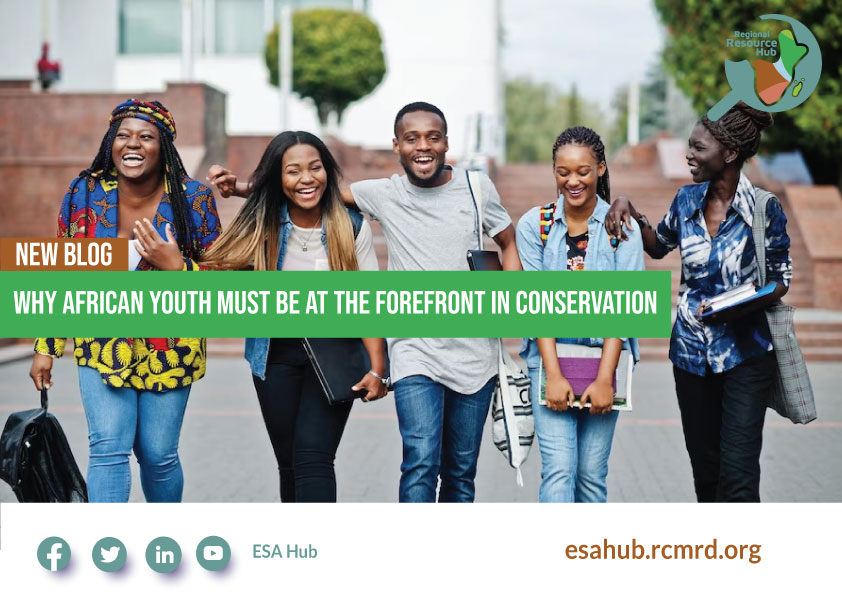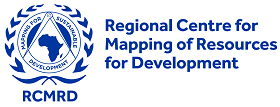
Africa is renowned worldwide for its beautiful and diverse landscapes and wildlife, with protected and conserved areas being an integral part of its natural heritage. These areas include national parks, game reserves, wildlife sanctuaries, and forests, among others. However, the preservation of these areas has become a major challenge due to human activities such as deforestation, poaching, and illegal wildlife trade. This has led to the degradation of ecosystems, loss of biodiversity, and negative impacts on local communities' livelihoods.
Our youth have a crucial role to play in the conservation of protected and conserved areas. According to the World Economic Forum, today, more than 60% of Africa’s population is under the age of 25, with projections being that by 2030, young Africans are expected to make up 42 percent of the world’s youth. Therefore, young people have a significant stake in our continent's future. They have the potential to be powerful agents of change, and their involvement in conservation efforts can have a significant impact on the preservation of Africa's natural heritage. Here are some reasons why African youth must be involved in conservation efforts:
Youth represent the future of conservation.
African youth are the future of conservation efforts in the continent. They will inherit the natural resources and protected areas that the previous generations have worked so hard to preserve. By involving them in conservation efforts, they can learn about the importance of conservation and develop the skills and knowledge needed to continue to protect these areas in the future.
They can bring new perspectives and innovation.
Young people are brilliant and can often bring fresh perspectives and innovative ideas to the table, which can help to address some of the challenges faced in conservation efforts. They are often more open to new technologies and approaches, which can help to make conservation efforts more effective and efficient. They can easily spearhead the conservation discussions on interwebs and sensitize the masses on why we need to conserve our environment. They can also boldly call on our leaders to come up with effective legislations on conservation especially on protection of our threatened species.
Youth can mobilize communities.
African youth are energetic and can easily mobilize communities to take action on conservation issues. They can use their social networks and communication skills to raise awareness about the importance of protecting natural resources and encourage people to get involved in conservation efforts. By mobilizing communities, young people can help to create a groundswell of support for conservation initiatives.
They can promote sustainable development.
Conservation efforts and sustainable development go hand in hand. African youth can play a critical role in promoting sustainable development by working to protect natural resources and wildlife habitats. This can help to ensure that future generations can benefit from these resources and that local communities can continue to thrive. But first they need to be sensitized on what sustainable development is all about and their place in this very important conservation conversation.
Youth are the beneficiaries of conservation efforts.
Conservation efforts can have significant benefits for young people in Africa. By preserving natural resources and wildlife habitats, conservation efforts can help to create opportunities for ecotourism, which can generate income and employment opportunities for local communities. Young people can also benefit from educational and training programs that teach them about conservation and provide them with the skills and knowledge needed to participate in conservation efforts. Currently, our existing curriculum does not speak much on conservation, this explains why many young people are not interested in conservation efforts. Hence there is need for conservation discussion to be inculcated early enough into our education system.
They can address social and environmental injustices.
Conservation efforts are often closely linked to social and environmental justice issues. Young people can play a critical role in addressing these issues by advocating for the rights of local communities and marginalized groups, promoting equitable access to natural resources, and ensuring that conservation efforts are inclusive and participatory. With the youth at the forefront, we can be certain of the sustainability of the efforts and a great future for Africa.
Africa’s youth must therefore be involved in conservation efforts to protect and conserve the continent's natural heritage. By involving young people in conservation initiatives, we can create a sustainable future for the continent's natural resources and ensure that future generations can benefit from these resources. With their help, we can ensure that Africa's protected and conserved areas are preserved for generations to come. These are our resources we must guard and utilize them sustainably.



